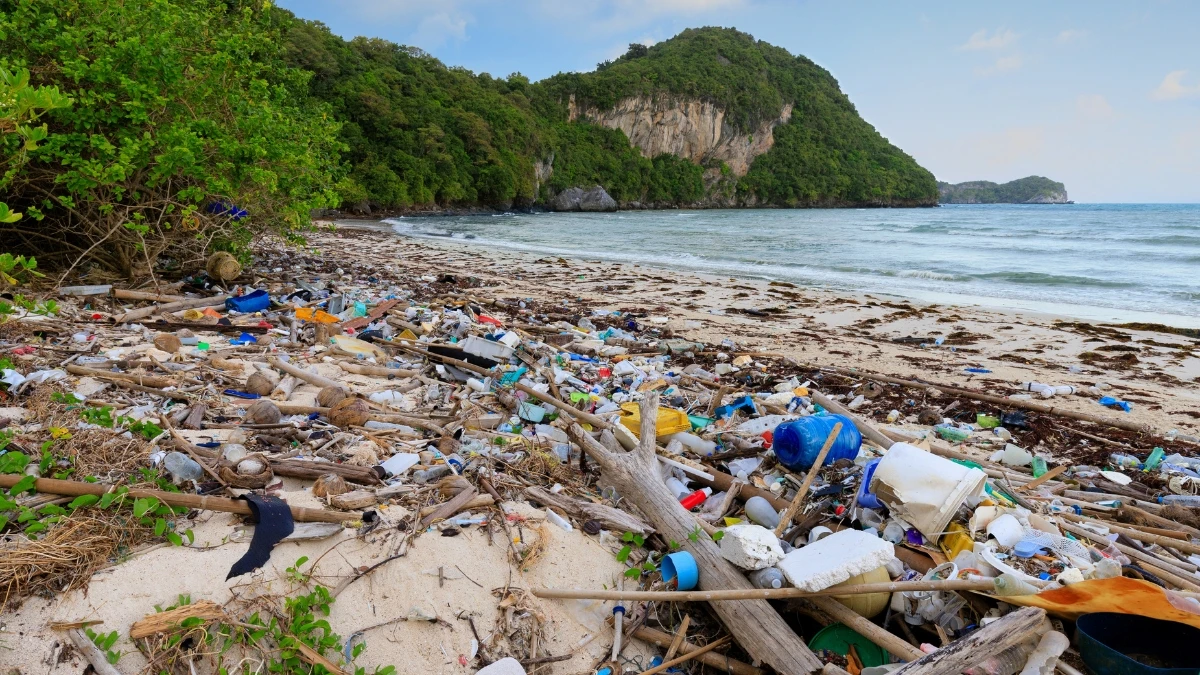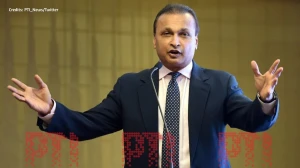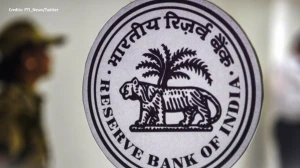New Delhi, Aug 14 (PTI) Governments negotiating the first-ever global treaty to curb plastic pollution were handed a new draft that leaves out binding limits on plastic production, a gap that has put the talks on edge and drawn sharp criticism from campaigners.
The text, released during the fifth round of negotiations on plastics treaty (INC-5.2) in Geneva on Tuesday, is part of efforts launched in 2022 to address what the UN calls a "plastic pollution crisis" that threatens oceans, wildlife, human health and the climate.
Scientists estimate more than 430 million tonnes of plastic is produced each year, much of it is short-lived products that become waste within months, with around 11 millions tonnes entering the ocean annually.
In a note accompanying the text, Chair Luis Vayas Valdivieso said the draft text "reflects my vision of a balanced outcome, carefully considering the red lines, sensitivities, aspirations and goals expressed by different delegations, always aiming to serve the common good while respecting the needs and interests of each State".
He urged delegations to "view the draft text proposal as a whole, not just as a series of articles to analyse separately, but as a thoughtfully balanced framework that connects a wide range of positions into mutual understandings".
The draft's provisions are largely framed as actions countries "shall" or "should" take, allowing flexibility based on national circumstances and capabilities.
It calls on Parties to "manage, reduce, or not allow" certain plastic products that have a high likelihood of entering the environment, are difficult to recycle or reuse, disrupt the circular economy or contain intentionally added microplastics.
It seeks improvements in "plastic product design, in pursuit of circularity" to enhance "safety, durability, reusability, refillability, repairability and recyclability" and to "minimise releases and leakages" into the environment.
The text also addresses "releases and leakages" of plastics, calls for environmentally sound waste management and urges "appropriate remediation measures" for "existing and legacy plastic pollution" in identified accumulation zones.
A section on "just transition" encourages parties to promote decent work and social protection for those disproportionately impacted, including workers in the plastics industry, waste pickers, small-scale fishers and affected communities.
On financing, the text establishes "a mechanism for the provision of adequate, accessible, new, predictable and timely financial resources", comprising the "Global Environment Facility Trust Fund" and a "new dedicated multilateral fund".
Financial support is to be "grant-based and concessional in nature" and tailored to the needs of developing countries, particularly least developed countries, small island developing states and economies in transition.
The proposal also covers capacity building, technical assistance, technology transfer, national planning, reporting, public awareness, research cooperation and the creation of institutional structures, including a Conference of the Parties, subsidiary bodies and a secretariat.
However, the draft does not set binding caps on plastic production or include a dedicated operative section on chemicals of concern, points that have been at the centre of negotiations between high-ambition countries seeking upstream measures and those favouring a focus on waste management and recycling.
The INC talks, hosted in different countries since 2022, are seen as the most ambitious global effort yet to address plastic pollution in a comprehensive manner.
The process is meant to tackle the issue from extraction of raw materials through manufacturing, use and disposal that campaigners say is essential to prevent further environmental and health harm.
However, deep divisions have emerged with a coalition of more than 60 "high-ambition" countries, including many from Africa, the Pacific and Europe, pushing for binding global measures to cap production, phasing out problematic plastics and eliminating hazardous chemicals.
On the other side, major oil and petrochemical producers, along with some manufacturing nations, have resisted limits on production and prefer nationally determined actions focused on recycling, waste management and voluntary commitments.
Minutes after the draft's release, indigenous, frontline and fenceline communities staged a protest outside the plenary hall, urging delegates to "use their power, use their voice, to end plastic pollution for communities, our planet and future generations".
David Azoulay, Head of Delegation and Environmental Health Programme Director at the Centre for International Environmental Law, said the draft "makes a mockery" of three years of consultation.
While there are token references to the UN Declaration on the Rights of Indigenous Peoples (UNDRIP), human rights and health, he said, the provisions that follow "undermine any and all measures that follow".
Azoulay warned it "gives in to petrostate and industry demands with weak, voluntary measures" that could see production increase "indefinitely" and "damn future generations".
Juressa Lee, co-chair of the International Indigenous Peoples' Forum on Plastics, said the omission was "colonially violent" and that anything less than full affirmation of these rights "fails minimum human rights standards".
Negotiations on the chair's draft will continue this week.
This report includes content sourced from Press Trust of India (PTI), edited for clarity and context.






